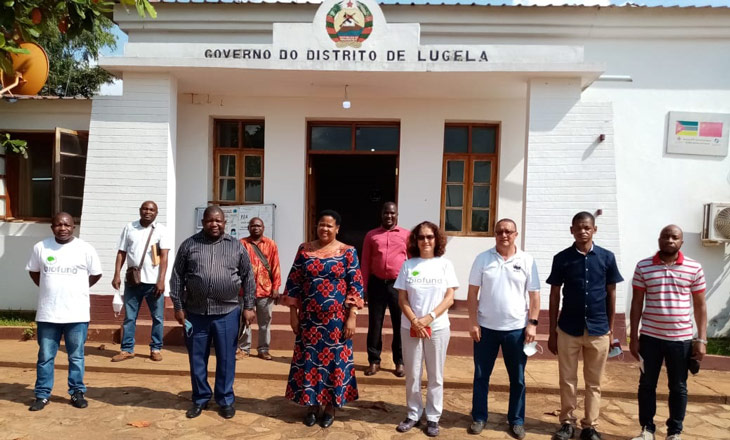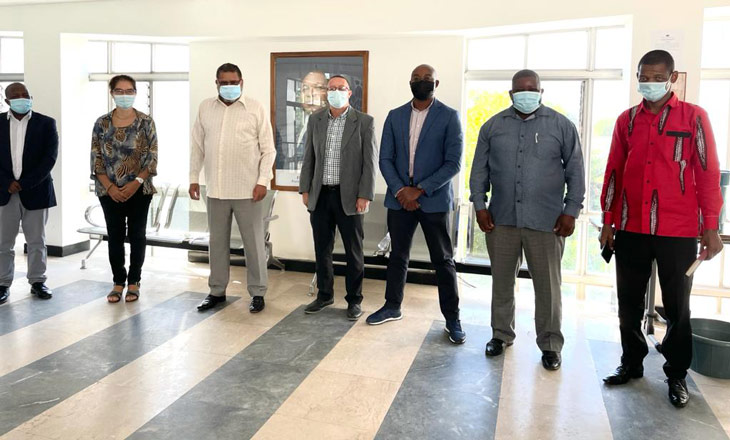This is the consortium formed by WWF, R-CGRN and RADEZA, which will implement the PROMOVE Biodiversidade (“Promote Biodiversity”) project on Mount Mabu. The team, consisting of the BIOFUND Director of Programmes, the coordinator of PROMOVE Biodiversidade and representatives of the consortium, was received in audience on 17 May by His Excellency the governor of Zambézia, Pio Augusto Matos, accompanied by the representative of the Zambezia Provincial Directorate of Territorial Development and Environment. On the occasion, Pio Augusto Matos, expressed his satisfaction with the project, stressing the importance of working in close coordination with the local leaderships, promoting their empowerment and building their capacity, since they are the vehicle that drives and facilitates community actions.
Published at 27/05/2021
“PROMOVE Biodiversidade” project presents implementation partner to the Zambezia provincial government and to Lugela district
The team was also received on 19 May by the Lugela District Administrator, Maria Carlota Tomás de Melo, who stressed that, if the project is properly implemented, it will have a great impact on the protection and monitoring of the biodiversity of Mount Mabu and on the development of sustainable livelihoods for the local communities. Maria de Melo also stressed the need to coordinate the actions of the various “PROMOTE” projects, in order to stimulate the development of the region, mainly in the areas of infrastructures and agriculture.
The meetings were intended to present the consortium implementing the project for the conservation of biodiversity and community development on Mount Mabu, located in Lugela district in Zambézia province.
The “PROMOVE Biodiversidade” project seeks to contribute to improving the livelihoods of rural communities, through the sustainable management of natural resources, focusing on Mount Mabu, the Gilé National Park, and the Protected Area of the Archipelago of the First and Second Islands (APAIPS), in Zambézia and Nampula provinces. It is financed by the European Union.
To find out more about the “PROMOVE Biodiversidade” project, click here.



